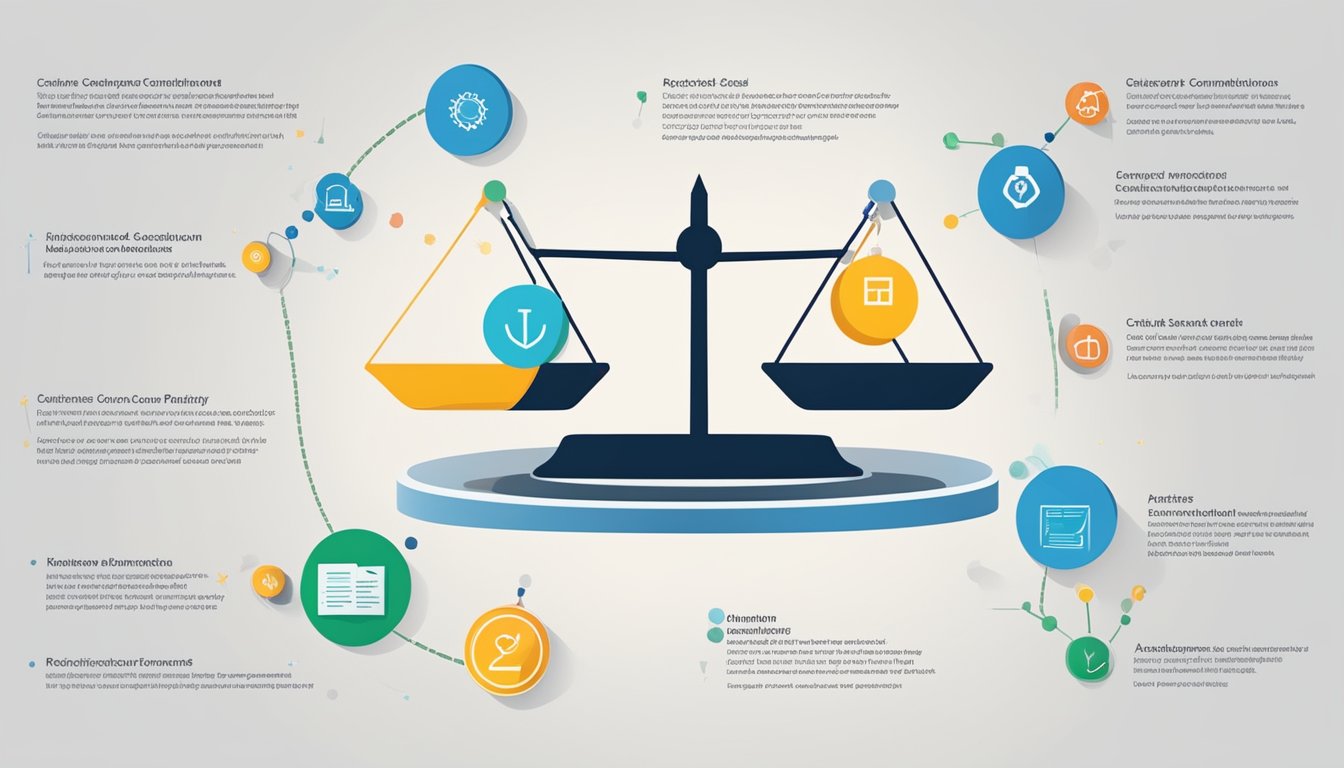Understanding Insurance Terms
Insurance terms can be confusing, but understanding them will help you make better decisions.
Key terms include “elimination period” and “waiting period,” which play crucial roles in insurance policies.
What Does ‘Elimination Period’ Mean?
An elimination period, or waiting period, is the time between when an injury or illness starts and when you begin receiving benefits from your insurance.
It is a way for the insurance company to reduce risk and avoid paying out immediately for short-term issues.
In short-term disability insurance, elimination periods usually range from 7 to 30 days.
For long-term care insurance, they can range from 30 days to two years.
The choice of elimination period affects your premiums; a shorter period means higher premiums, while a longer one lowers them.
Understanding this term is essential to managing your financial risk and ensuring you get the coverage you need when you need it.
Key Takeaways on Waiting Periods
Waiting periods are built into most insurance policies to control costs and minimize risk.
They are particularly relevant in long-term disability insurance.
During this period, policyholders do not receive benefits, even though they have paid premiums.
You must evaluate your financial situation carefully when choosing a waiting period.
A longer waiting period might reduce your premiums but increase your risk of financial hardship if you become disabled.
Shorter waiting periods result in higher premiums but provide quicker access to benefits.
In summary, understanding and choosing the right elimination or waiting period ensures that your policy adequately covers your needs without causing undue financial strain.
Disability Insurance Explained
Disability insurance provides financial protection if you become disabled due to illness or injury.
It helps cover medical expenses, out-of-pocket costs, and more.
Disability Insurance for Policyholders
As a policyholder, disability insurance offers you a safety net.
When you become disabled, this insurance pays disability benefits to help replace your lost income.
The insurance policyholder can choose between short-term and long-term coverage.
Short-term policies offer benefits for a few months up to a year. Long-term policies provide coverage that can last several years or until retirement.
You will need to pay premiums for this protection.
Insurance premiums are based on factors like age, health, and occupation.
Benefit payments start after the elimination period ends.
This waiting period can range from a few days to several months.
Sometimes, a chronic illness or pre-existing condition might affect your premiums or coverage.
Impact of Illness and Injury on Coverage
Illness or injury can significantly impact your financial situation.
Disability insurance helps cover medical and living expenses if you cannot work.
When you are ill or injured, you may incur high out-of-pocket costs.
Your coverage details depend on your insurance plan.
Policies may have specific waiting periods and benefit caps.
Most plans have exclusions for pre-existing conditions.
Premium rates may vary.
Lower rates mean higher waiting periods before benefit payments begin.
Regularly reviewing your policy ensures it fits your needs, especially if you deal with chronic illnesses.
Establishing an emergency fund is also a smart way to prepare for unexpected medical expenses not covered by your insurance.
Policy Considerations and Compliance

When managing an insurance policy, key factors to weigh include evaluating premiums and benefits, and handling claims and disputes effectively.
This ensures you maintain adequate coverage and uphold policy compliance.
Evaluating Insurance Premiums and Benefits
Choosing an insurance policy requires a balance between premium costs and the benefits offered.
A shorter elimination period typically leads to higher premium rates, while a longer elimination period may lower your premiums but delay benefit payments.
Your decision should be based on your financial situation and budget.
For instance, if immediate coverage is crucial, a higher premium rate might be more suitable.
It’s essential to consider your potential for lost income during the waiting period.
An effective strategy is maintaining an emergency fund to cover expenses until benefit payments begin.
Consulting a financial advisor might aid in selecting the most suitable policy based on individual circumstances.
Handling Claims and Disputes
Managing claims and resolving disputes start with understanding the terms of your insurance policy thoroughly.
Incorrect filing or delays can cause financial hardship, making it essential to follow prescribed procedures.
Promptly submitting claims with all required documentation helps avoid unnecessary delays.
In the event of a dispute, knowing your rights as a policyholder is crucial.
Some policies have a contestable period, during which claims are closely scrutinized.
It’s also important to be mindful of insurance fraud risks, as fraudulent claims can lead to severe consequences.
Familiarize yourself with your provider’s claims procedure to ensure compliance and prevent errors.
clauses outline the claims process and preempt disputes.
Reviewing your insurance policy regularly can safeguard against oversight and ensure accurate and timely claims.






